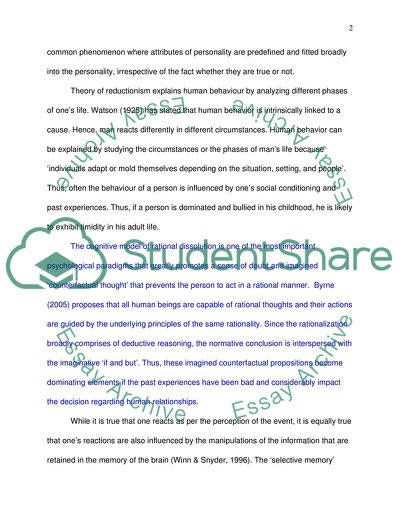Reductionism Theory and Implicit Theories of Personality Case Study Example | Topics and Well Written Essays - 1500 words. https://studentshare.org/psychology/1738626-personal-writting-on-advanced-development
Reductionism Theory and Implicit Theories of Personality Case Study Example | Topics and Well Written Essays - 1500 Words. https://studentshare.org/psychology/1738626-personal-writting-on-advanced-development.


